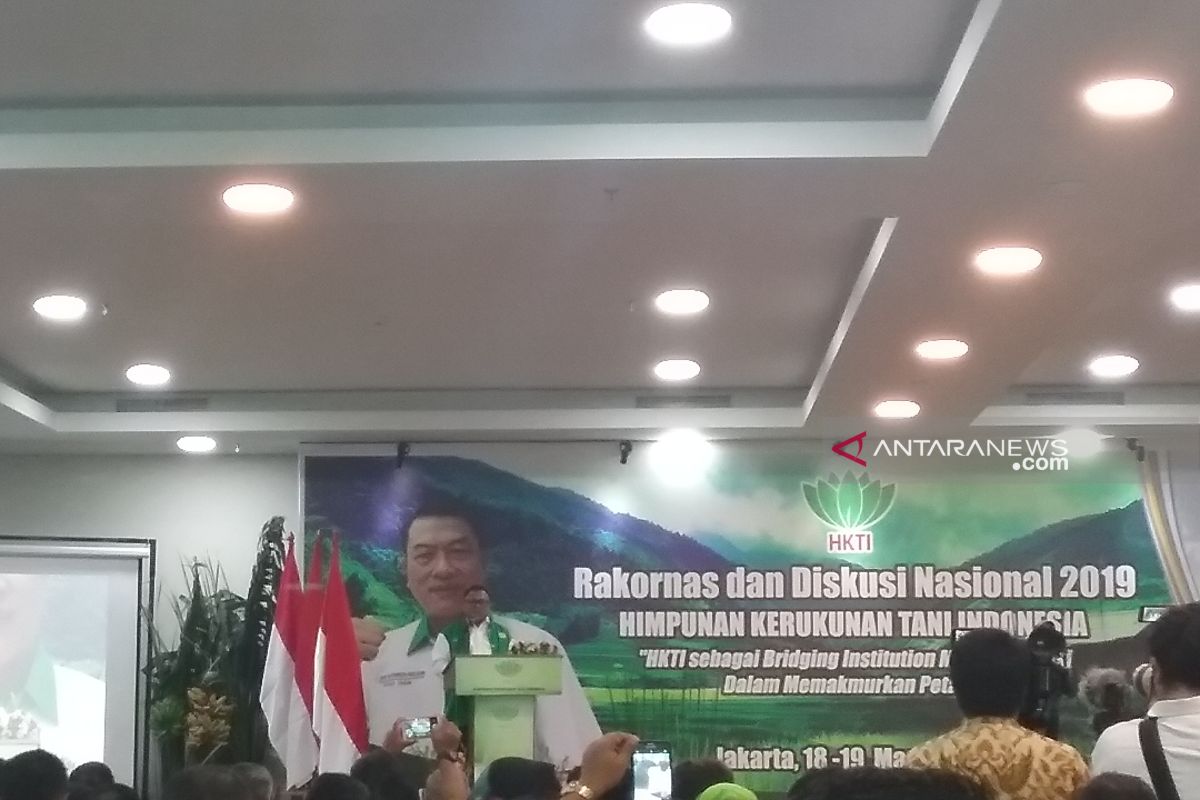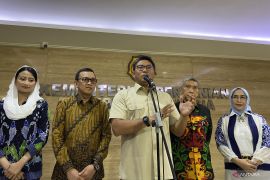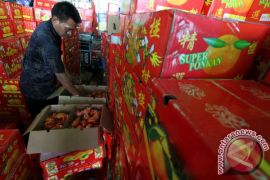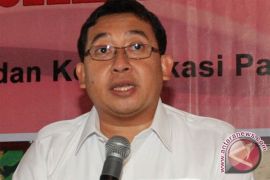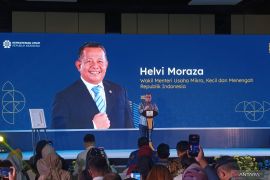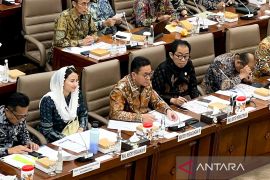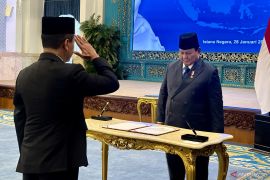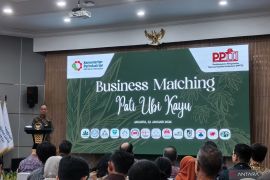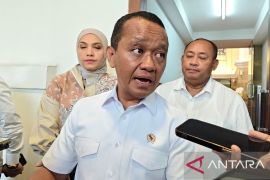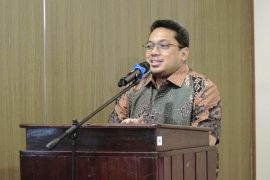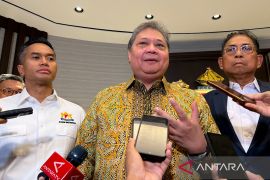AntaraJakarta (ANTARA) - The Indonesian Farmers' Association (HKTI) wants the imports of various commodities that harm local agricultural production in the country to be stopped so that the welfare of farmers in the archipelago can also increase.
"Stop imports that are detrimental to farmers," said Chairman of the HKTI-Organizational Advisory Agency (BPO) Oesman Sapta while speaking at the 2019 National Coordination and Discussion Meeting in Jakarta on Monday.
For this reason, Sapta emphasized that HKTI must also encourage various policies that improve the welfare of farmers.
Moreover, he said, now more and more members of the community need to be encouraged, including the younger generation who are interested in plunging into the world of agriculture.
HKTI in February 2019 also sent as many as 20 farmer ambassadors to send Training of Trainer (ToT) on technology and methods of natural agriculture to Thailand.
Oesman appreciated the government's focus on building agricultural infrastructure evenly in various regions in the country.
The Center for Indonesian Policy Studies (CIPS) researcher, Assyifa Szami Ilman, stated that the government through various relevant institutions and ministries needs to improve food data to reduce the chaos of imports.
"Food data problems that have always been used as a reference for imports have not been fully reliable. Improvement of new commodity data has been carried out on rice commodities, and even then, at the end of October 2018, single data that can be relied on by the government and the public is needed," Assyifa Szami Ilman said.
According to him, the improvement of food data also needs to be done as a follow up to various recommendations that have been issued by the BPK regarding imports.
He argued that import activities that have not been effective are actually based on data references that are used as the basis for imports.
Thus, he continued, if the reference data is not reliable, the result is an ineffective policy. As a consequence, there are times when food production is said to have been surplus but the price still tends to fluctuate.
"When prices fluctuate, the Ministry of Trade will definitely need to take action to reduce the turmoil, one of which is import," he said.
Previously, Research Institute for Development of Economics and Finance (Indef) Rusli Abdullah said the import policy should be the last option to fulfill the functions of the Bureau of Logistics as a buffer for food needs.
"Imports can be done, but it is the last choice, once the production of minus and Bulog reserves cannot be cultivated domestically," Abdullah said.
Abdullah explained that Bulog as an institution that supports food requires a minimum of 1.5 million tons for reserves if urgent matters such as disasters or crop failures occur.
Translator: Eliswan Azly
Editor: Rahmad Nasution
Copyright © ANTARA 2019
